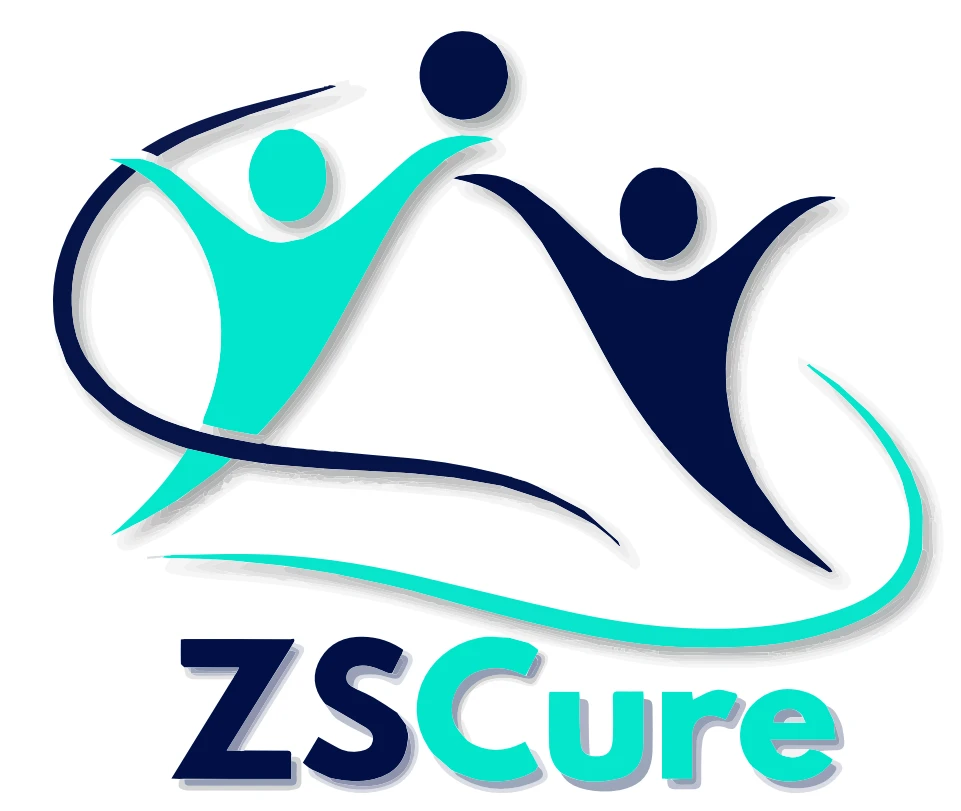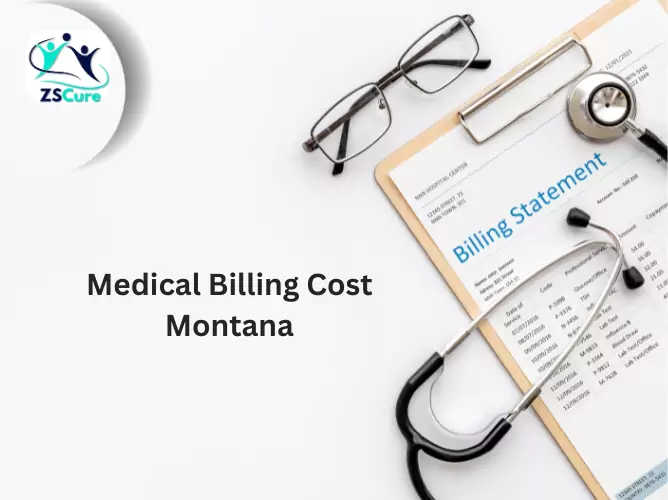Medical billing services help you handle the complex task of filing and tracking insurance claims for your healthcare practice. These services take care of submitting claims, accurate coding, posting payments, denial management, and insurance follow-ups to keep your revenue flowing smoothly. By using medical billing services, you can save time, reduce errors, and often increase reimbursements, letting you focus more on patient care.
Outsourcing billing to professionals means you get customized reports, detailed accounts receivable management, and support with insurance verification and enrollment. This not only helps you stay organized but also improves your practice’s financial performance.
If you are looking for ways to streamline your office and reduce overhead, medical billing services offer a practical solution for practices of any size. With accurate and timely claims processing, your practice can avoid costly delays and lost revenue.
Core Components of Medical Billing Services
Reliable medical billing services depend on three main areas. These include accurate claims submission, correct charge entry and payment posting, and proper use of medical coding.
Claims Submission Process
The claims submission process is the link between your healthcare services and insurance payment. You need to collect detailed patient information, verify coverage, and document all services clearly. Claims are prepared using specialized software and often submitted electronically through Electronic Data Interchange (EDI).
Submitting claims accurately the first time reduces denials and delays. Each claim must include patient details, provider identification, and the correct service codes. Once a claim is sent, you should follow up on its status using tracking tools.
Timely claims submission ensures you meet insurance deadlines. Errors or missing information can lead to rejections, so double-check every claim before sending it.
Charge Entry and Payment Posting
Charge entry means entering each service and its fee into your billing system for every patient visit. Careful data entry helps avoid mistakes that can cause underpayments or lost revenue. You’ll use the services performed and documented by providers to set correct charges.
Once payments arrive, payment posting records them against the correct patient accounts. Most payers now send Electronic Remittance Advice (ERA), making posting both faster and more accurate. Proper payment posting allows you to spot payment delays, rejections, or underpayments easily.
Review reports to catch trends, such as frequent denials or slow payments. Keeping accurate payment records ensures your practice can track income and address any billing problems quickly.
Medical Coding Essentials
Medical coding translates your healthcare services into standard codes that payers require. You need to use ICD-10 for diagnoses and CPT or HCPCS codes for procedures and supplies. Coding accurately reflects the care given and supports claim approval.
Mistakes in coding can cause claim denials or even trigger audits. Each encounter must match the documentation completed by your providers. Staying up to date with coding changes is important, as rules and code sets can change annually.
Using certified coders or robust billing systems helps you maintain accuracy. Correct coding speeds up reimbursement and helps maintain compliance with payer rules.
Revenue Cycle Management in Healthcare
Revenue cycle management (RCM) in healthcare is a set of connected processes that are essential for keeping a medical practice or hospital financially healthy. Key elements include claim submission, handling claim denials, and collecting from insurance or patients for provided services.
Overview of Revenue Cycle Management
RCM starts when a patient schedules an appointment and continues until payment for care is received and the account is closed.
You need to track every step, beginning with pre-registration, insurance verification, and coding of procedures. Accurate documentation and coding are critical so that your practice can properly bill for all services.
You also submit claims to payers, post payments, handle adjustments, and clear outstanding balances. Each step impacts your organization’s cash flow and financial stability.
A medical billing company or specialized billing staff can make this process smoother. Using checklists or schedules to review each part of the cycle can help you spot bottlenecks and prevent revenue loss.
Denial Management Strategies
Denied claims can slow down payments and hurt your organization’s bottom line. To limit financial loss, you need a focused denial management process.
Start by tracking the main reasons for denied claims, such as missing patient information, incorrect codes, or expired insurance. Keep a record of denials in a simple table like the one below:
| Denial Reason | Frequency | Action Needed |
| Incorrect Coding | High | Staff Training |
| Missing Information | Medium | Checklist Review |
| Eligibility Issues | Low | Verify Insurance Early |
Appeal denied claims quickly with accurate corrections. Regular staff training on coding and billing procedures reduces future denials.
A good denial management process requires communication between billing, front desk, and providers. By using clear workflows, you help prevent repeated mistakes and improve your collections.
Accounts Receivable and Collections
Accounts receivable (A/R) is the money owed to you for provided healthcare services. Managing A/R well makes sure you receive payments on time and avoid unpaid balances piling up.
Monitor aging reports weekly to see which accounts are past due. Most billing systems show A/R sorted by how long payments have been outstanding: 0-30 days, 31-60 days, 61-90 days, etc.
Use a combination of reminder calls, mailed statements, and follow-up emails to collect from patients and insurance. If balances remain unpaid, consider payment plans, or in some cases, outside collections.
Keeping A/R low supports your practice’s cash flow and stability. Accurate, consistent billing is key in making sure services are paid for and financial health is maintained.
Medical Billing Outsourcing and Specialized Services
Medical billing outsourcing helps healthcare practices lower costs, improve efficiency, and increase revenue flow. These specialized services also allow you to keep up with industry rules, coding updates, and insurance requirements.
Benefits of Medical Billing Outsourcing
When you use medical billing outsourcing services, you reduce operating expenses by lowering the need for in-house billing staff and technology. Many vendors charge a percentage of collections rather than a fixed salary, so you only pay for results. According to recent industry data, practices can save up to 30-40% on billing costs compared to hiring full-time staff.
Outsourcing also speeds up claim processing, which means you get paid faster and with fewer errors. Companies specialize in correcting denied claims and follow up quickly with insurers. This keeps your cash flow steady and reduces stress on your internal team. Your providers can then spend more time focusing on patient care.
Other reasons to outsource include better compliance with changing regulations and a scalable solution as your practice grows. Reputable billing companies stay updated with medical billing codes and payer rules, so you avoid mistakes that lead to lost revenue.
Medical Coding Services
Medical coding services convert diagnoses, treatments, and procedures into standardized codes for insurance claims and records. Accurate coding is vital for correct reimbursement. Errors in medical coding can lead to claim rejections and delayed payments. When you use professional medical coding services, you benefit from expert coders who know the latest ICD-10, CPT, and HCPCS codes.
Certified coders understand complex specialty codes and tougher compliance requirements. They help avoid common coding mistakes, such as upcoding or undercoding, which can trigger audits or penalties. Many coding services also use automation and software to spot mistakes before claims are sent. By working with coding experts, you help make sure your billing is reliable and compliant.
Provider Enrollment and Credentialing
Provider enrollment and credentialing are required steps for getting your healthcare providers approved by insurance plans. The process includes gathering documents, completing applications, and checking qualifications. Failure to enroll or credential properly can delay or prevent you from getting paid for services.
Outsourced specialists handle these steps, keeping track of every payer’s requirements and renewals. They help you avoid missed deadlines or incomplete paperwork, which are common reasons for payment delays. Some companies provide online portals that let you follow the status of each application and credentialing packet.
Common tasks in provider enrollment and credentialing include:
- Collecting licenses, certificates, and background checks
- Completed payer applications and forms
- Ongoing re-credentialing when needed
By using specialized services, you save time, reduce errors, and safeguard your practice’s revenue stream.
Technology and Compliance in Medical Billing
Medical billing services now rely on digital tools to reduce errors, speed up claims, and protect patient information. Efficient technology and strict compliance help you meet payer standards while avoiding costly mistakes or penalties.
EDI and ERA Integration
Electronic Data Interchange (EDI) allows you to send claims, eligibility requests, and payment inquiries to payers directly from your billing system. This digital communication replaces paper forms and manual entry, saving you time and reducing the risk of human error.
Electronic Remittance Advice (ERA) gives you a digital record of how payers process and pay your claims. You can quickly match payments to claims, identify denials, and fix mistakes without sorting through piles of paperwork.
Benefits of EDI & ERA in medical billing:
- Faster claim processing
- Lower administrative costs
- Quicker updates on claim status
- Fewer rejections due to incomplete or illegible data
Most practice management systems now include EDI and ERA modules. Using these features helps you keep your cash flow steady and manage your billing services more effectively.
Data Security and HIPAA Compliance
Handling electronic health and billing information comes with strict privacy rules. The Health Insurance Portability and Accountability Act (HIPAA) sets standards for protecting medical data in digital form.
To stay compliant, you must control who has access to patient information and how it’s transmitted. Strong passwords, regular staff training, and data encryption are key steps. Secure medical billing systems should also keep audit logs to track who views or changes records.
Not following HIPAA can lead to fines and damage your reputation. Always make sure your billing software uses the latest security patches and lets you update user permissions as needed.
Choosing the Right Medical Billing Company
Selecting a medical billing company can affect how fast and accurately your practice gets paid. It is essential to look closely at the company’s experience, services, and how well they fit your specific medical needs.
Evaluating Industry Expertise
Check if the medical billing company has a proven track record in handling billing for your type of medical practice. Some companies specialize in certain fields like cardiology, orthopedics, or primary care. Industry expertise means fewer billing errors and faster claim approvals.
Ask how long they have served healthcare providers in your area. Consider if they understand current rules like HIPAA and Medicare. Look for certifications such as Certified Professional Biller (CPB) or accreditation from recognized organizations.
Review references and case studies when possible. A company that stays up-to-date on billing software and compliance changes offers you a better chance at reducing claim denials.
Questions to Ask Before Contracting
Before signing an agreement, prepare a list of important questions:
- What billing software do you use, and is it compatible with my existing systems?
- How do you protect patient data and comply with privacy laws?
- What is your average claim rejection rate?
- Can you provide detailed monthly reports and financial summaries?
- Are your fees fixed or percentage-based?
Ask about support and response times if an issue arises with a claim. Make sure you will have a dedicated contact person. Review the contract carefully for any hidden fees or cancellation policies to avoid surprises later.
Get clear examples of how the company handles appeals, follow-ups, and denied claims. Understanding these details now saves time, frustration, and money in the long run.
Frequently Asked Questions
When managing your practice, it’s important to choose effective billing solutions, understand compliance, and find reliable service options. Comparing features, local support, and business structures can help you make informed decisions.
What are the benefits of outsourcing medical billing for small practices?
Outsourcing medical billing helps you save time and focus more on patient care. Professionals handle insurance claims, code issues, and payment collections, reducing errors and improving cash flow.
You can also expect faster claim processing and fewer denied claims. This often leads to quicker payments to your practice.
How do medical billing services adapt to different state regulations in the USA?
Medical billing companies stay up-to-date with each state’s healthcare laws and requirements. They use specialized software and trained staff to stay compliant with local and federal rules.
You should expect regular updates and adjustments as laws change, protecting your practice from legal issues and fines.
What should I look for when selecting a medical billing services company?
Check for experience with your specialty and a history of accurate claims submission. Good communication, transparency in pricing, and strong customer support are also important.
Ask about their technology, reporting features, and how they follow up on denied claims. Make sure they follow legal and ethical billing standards.
How can I find reputable medical billing services near my location?
Start by searching online for local medical billing companies with high ratings and positive reviews. Ask other healthcare providers in your area for recommendations.
Contact multiple companies to compare services and costs. Some companies offer custom packages based on your practice needs.
What are the advantages of working with an LLC for medical billing services?
An LLC offers business liability protection and may safeguard your personal assets in case of legal issues. It also often provides more credibility and formal structure than sole proprietorships.
LLCs may offer flexible tax options and clearer business management policies, making them a good choice for many practices.
What features should a medical billing services website offer to ensure efficient practice management?
A good website should have secure portals for uploading documents and checking claim status. Online payment tools and clear explanations of services help you stay organized.
Look for features such as detailed reporting, appointment reminders, and customer support chat. These tools make billing and practice management much easier for both you and your patients.



